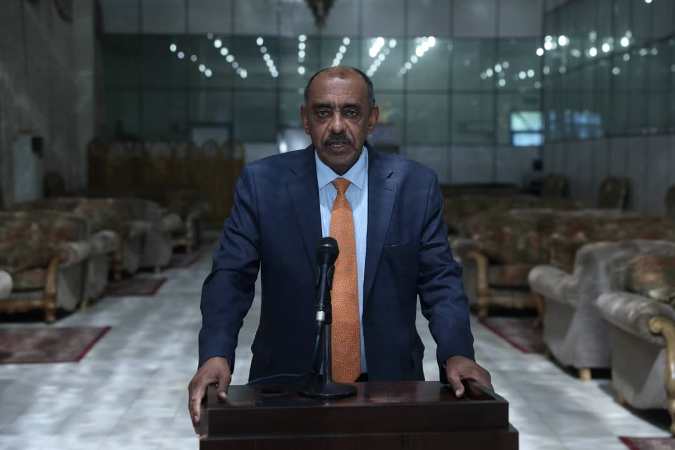Military component is committed to withdraw from politics: Sudan’s FM says
July 6, 2022 (KHARTOUM) – Acting Foreign Minister Ali Sadiq on Wednesday confirmed the withdrawal of the military component from the political process and non-interference in the activities would-be-formed civilian government.
The former ruling coalition Forces for Freedom and Change (FFC) questioned the credibility of pledges made by the head of the Sovereign Council, on June 4, about the withdrawal of the military component from the intra-Sudanese dialogue facilitated by the tripartite mechanism, and their neutrality towards the government that would be formed through this process.
Following his return from the IGAD summit with General al-Burhan, Sudanese Foreign Minister Ali Al-Sadiq briefed foreign diplomats in Khartoum about the recent measures announced by the Chairman of the Transitional Sovereign Council.
Al-Sadiq stressed that al-Burhan clearly indicated the army’s decision to withdraw from the political process facilitated by the Trilateral Mechanism of the UNITAMS, the African Union and the IGAD.
“The army will not engage in any negotiating process on the choice of a civilian prime minister or the formation of a civilian technocratic government. Also, the political process will be purely civilian as it was demanded by the political forces,” he said.
The civilian government “will determine and implement the foreign policy, restore security, and stability in the country, deal with difficult living conditions and organise elections,” he further stressed.
The foreign minister did not say who will appoint the prime minister and the role of the higher military body in this process.
The FFC says there should be a lean collegial presidency composed of civilians to perform such symbolic functions.
The political coalition says that al-Burhan instead of fully withdrawing from the government plans to place the army and the Rapid Support Forces at the head of the state with sovereign powers.
Yasir Arman a leading member of the FFC disclosed that the military component filled a note including the role o the higher military council to the facilitators and a number of Western countries.
Arman added the military council intends to conserve some sovereign tasks, including foreign policy and oversight of financial policy through the Bank of Sudan.
In the same vein, the signatory groups expressed fears that these decisions would lead to cancelling the Juba Peace Agreement, especially the power-sharing chapter that deals with their participation in the national government.
Upon his return from Nairobi, al-Burhan met the pro-coup National Consensus groups including, among others, Darfur armed groups led by Minni Minnawi and Gibril Ibrahim.
After the meeting, the National Consensus Secretary-General Mubarak Ardol told reporters that they discussed with him some hazy issues.
“We asked al-Burhan to clarify some ambiguities in his speech and we had a frank discussion,” said Ardol.
He did not elaborate on what they had raised or al-Burhan’s responses but called on the political forces to make the needed concessions for dialogue to form a transitional government.
(ST)

